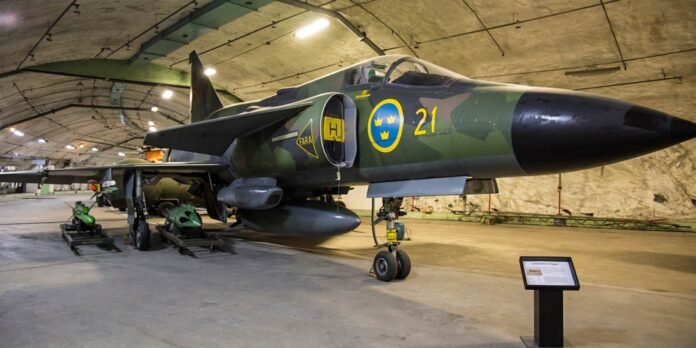Two days after US strikes on Iran’s nuclear sites, explosions hit Doha, Qatar. Iran confirmed missile launches at US bases in Qatar and Iraq. Qatar claimed its sovereignty was breached but stated all missiles were intercepted. No casualties occurred, yet the attack led to airspace closures in the Gulf, disrupted international flights, and heightened fears of broader regional conflict.
Background: A Rapidly Escalating Cycle
The conflict between Iran and Israel is escalating, with the US now actively participating. On Saturday, the US launched attacks on three Iranian nuclear sites—Fordow, Natanz, and Isfahan—using B-2 stealth bombers. Washington claimed this was to prevent Iran’s alleged weapons program. In response, Iran fired an equal number of missiles on Monday, targeting the Al Udeid air base near Doha and a US base in western Iraq.
The Missile Launch: What Happened
Before dawn on Monday, people in Doha heard over 20 explosions. Qatar’s Prime Minister’s advisor, Majed Al Ansari, condemned this as a “flagrant violation” of sovereignty and international law. He confirmed that surface-to-air missile batteries at Al Udeid air base intercepted all incoming Iranian missiles over Qatari airspace. The base’s 10,000 troops had been evacuated earlier as a precaution.
In Iraq, the US embassy in Baghdad confirmed no American staff were injured, and local defenses intercepted rockets. Though details are limited, experts suggest Iran intended to show it can target US interests overseas.
Impact on Gulf Air Travel
Qatar, UAE, Kuwait, and Bahrain’s closure of Gulf airspace had swift global effects. Doha’s Hamad Airport stopped departures for hours, redirecting arrivals to Oman and Saudi Arabia. Emirates and Etihad rerouted flights from Dubai and Abu Dhabi to Jeddah, Muscat, and Bahrain. Qatar Airways adjusted long-haul routes to bypass the Persian Gulf, extending flight times between Europe and Australasia. Many Australians depend on Gulf airlines for European connections, so disruptions may last if tensions continue.
Regional and International Reactions
Qatar condemned the attack, calling it an unacceptable breach of neutrality.
United States and United Kingdom
Governments advised citizens in Doha to stay indoors and be prepared to evacuate non-essential staff if needed. The Pentagon is watching for more threats to US bases in the area.
Iran
State media justified the strikes as a legal response to U.S. “aggression” in Iran. Tehran claims it warned Qatar and Washington beforehand, but Doha hasn’t confirmed this, though some Gulf diplomats mention informal alerts.
Israel
Jerusalem praised US-Israel coordination as a warning to Iran but did not claim involvement in the Qatari strikes. Israeli Prime Minister Benjamin Netanyahu tweeted that the joint operation shows their united effort to halt Iran’s nuclear ambitions.
Risk of Wider Escalation
Military experts warn that the Al Udeid attack marks a dangerous new phase:
- Targeting of Third-Party States
Attacking bases in Qatar, once seen as neutral, sets a new standard that might involve Gulf Cooperation Council members in the conflict. - Proxy Activation
Iran’s allied militias in Iraq, Syria, Lebanon, and Yemen might retaliate against US and allied interests in the Middle East. - Maritime Chokepoints
Iran or its allies might target the Strait of Hormuz and Bab al-Mandab to disrupt shipping and influence global markets.
Analysts worry about a cycle where each side’s actions lead to stronger retaliation, risking widespread conflict in the region.
Humanitarian and Economic Costs
While the immediate human toll appears minimal, the attack’s reverberations will be felt widely:
- Civilian Anxiety
Foreigners in Doha and Baghdad experience sleepless nights and panic buying due to increased drills and sirens. - Oil Price Volatility
Brent crude surged 4% after strikes, with markets worried about supply issues. A major closure of Gulf shipping routes could push prices up further. - Reconstruction and Defense Spending
US forces in Qatar and Iraq will likely enhance air defenses, redirecting funds from reconstruction and aid programs.
What’s Next?
Diplomatic Overtures
France and Germany are leading European efforts to mediate and reduce tensions, pushing for renewed discussions on Iran’s nuclear program. However, Iran’s leaders refuse to negotiate while under pressure.
US Decision Window
President Trump plans to decide in two weeks on expanding U.S. strikes on Iran, allowing time for diplomacy but showing readiness for more action.
Regional Realignments
Gulf states need to reevaluate their security alliances. Qatar, hosting Al Udeid and the largest US air command in the area, might strengthen its relationship with Turkey. Turkey’s secret support for Qatar during the 2017 GCC blockade gained it favor.
Conclusion
Explosions in Doha on Monday marked a new phase in the Israel-Iran conflict, with the U.S. now directly involved. Qatar closed its airspace, evacuated 10,000 people from Al Udeid, and disrupted global air travel, highlighting how fast a regional issue can escalate into an international crisis. As Baghdad issues warnings, the next days or weeks will reveal if diplomacy can prevent the Middle East from spiraling into a broader, uncontrollable war.
